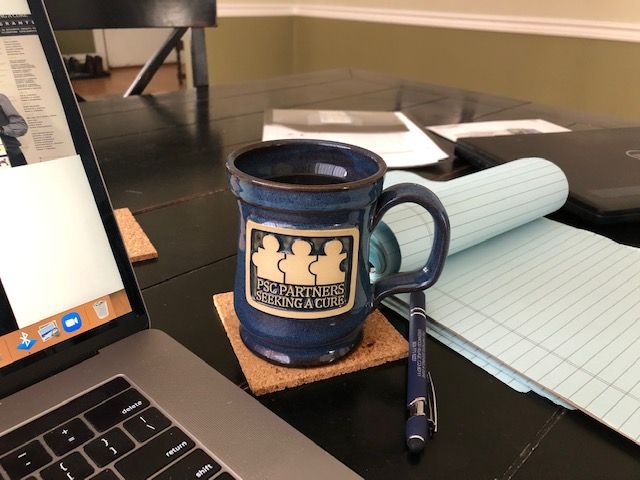
Transitions. What does a transition mean to you? Around this time a year ago, I would tell you that it meant putting my big girl pants on and walking across the street to the adult general hospital and never looking back to the oh so comfy paediatric hospital that I had grown to love.
It meant new doctors, environments, and new care plans.
I was never one to love change, but that is exactly what transitions are. Transitions are by definition, “the process or a period of changing from one state or condition to another.”
I was fortunate to have experienced such a smooth and successful transition when my time came last year. I became my own advocate and voice in the clinical room. I was booking and running my own appointments. I was changing my primary phone number to my cell phone instead of my moms, which was a big deal to me! Even the subtle changes in my gestures and tone of voice during my appointments showed I was ready and independent. I went from needing my mom to speak to my doctors about my painful symptoms and drug side effects, to me asking her to stay in the waiting room until the end of the visit where she would then come in for a summary report. That further transformed into her staying at home and me conference calling her into each appointment. Finally, ending with me not needing to call her at all, but instead ask her if she had any questions I should ask my doctor prior to going into the appointment.
I even showed signs of transitioning into a young adult at school with my Independent Education Plan or IEP meetings. When my IEP first came into effect it was just my mom and the teachers that would handle it, but as I grew older I was given a seat at the table to discuss MY education. Similarly to transitioning out of the hospital with appointments, I also eventually reached a stage where my parents were no longer needed at my IEP meets as I learned how to advocate for my needs and accommodations with the school. When I graduated high school and began university I had to set up my accommodations all over again, but this time it was my voice, not my mom’s, who presented my needs to the disability office. It was my voice that asked for extra time on a paper or an exam deferral due to a recent hospitalization. It was my voice that called for help. And, while I must say I did I pretty good job requesting and receiving my needs, it wasn’t always easy. I did encounter many roadblocks and difficult situations, which then I would ask my mom or my academic accommodations facilitator for guidance. For example, when I requested one of my profs for their approval to use one of my accommodations on my form to be used on exam they responded with a simple, but straight forward NO. I was a little shocked with this response since I had legal documentation supporting my requests and my prof just said no out of inconvenience.
Another example, but in a healthcare setting was when I was preparing to leave the paediatric hospital and my mom came with me and I was having trouble voicing my upper right quadrant pain to my doctor as she kept shooting it down with a simple statement saying “the liver does not produce pain, there are no nerves in the liver. Your pain is not PSC pain.” When my mom stepped in to help voice my concerns my doctor began to explain how I needed to be more independent and learn to advocate for myself going into the adult world. This hurt because I am independent. I do advocate for myself and I do it well. I was just struggling this one time because my own doctor couldn’t understand my pain. I felt like I was screaming of pain, but she, my doctor, was muffling the sound.
In both these situations I was let down by the education and healthcare system. I was let down by people I relied on to help me. I was discouraged and something no patient or student should have to experience when making such big transitions in their life. It definitely made me scared and I wanted to shy away from making further changes or even proceeding with this transition.
My last appointment at the paediatric hospital was also a transition appointment. That’s where I met my adult liver doctor who was going to take on my care in adulthood. I met him along with my paediatric team at Sick Kids in Toronto where I felt comfortable in an environment I knew so well. Then, when it was time to see him in the adult world, Toronto General Hospital, I knew that I was seeing a familiar face, therefore making me feel less anxious and intimidated about being in the big adult world, that is not family centred, not nurturing, and definitely not hand holding. However, despite these unsettling approaches, my appointment ran smoothly and I felt comfortable to talk about my health concerns independently and advocate for myself.
I could say my mom and doctors groomed me well in preparation for this shift in my life. But now a year later looking back on this transition, I must also give credit to my illness itself for forcing me to be such an independent adult, including my growth in mental capacity and strength, forcing me to be the person I am today out of necessity.
With such a complex health history like mine, and my progressive liver disease, I chose not to be scared. I chose to take charge. I chose to be as knowledgeable as I could about my illness and myself. I was able to make these choices because I was supported.
When thinking about what I would recommend to all the parents and PSC’ers that are going through transitions or are about to, I wouldn’t give them a set of rules and goals. I wouldn’t tell them the 5 stages or whatever of transitioning. I would sit down with them individually; I would speak to them through experience and explain the process. I would tell the parents to start getting their kids to learn how to advocate for themselves. How to send that email to their doctor; make that phone call to the clinic. The first step for me was learning how to talk to the secretary at the adult liver clinic since she is so busy and also had a strict and scary adult voice. It could be as simple as asking your kid to call the pharmacy to refill their medication or book their flu shot. So, to all the PSC’ers start your transition journey by understanding and managing your own health. If you want a smooth transition you need to feel safe and comfortable, meaning no big jumps. It has to be a gradual change over time. Which is exactly what I would recommend. Time. Because, all changes require time for preparing, for enduring, and for adjusting.
So, Ladies and Gentleman, I am here today to show you that I chose to fight, but in order to fight you must continue on the path the universe gave you. The path that forces you to make that transition and still be ok with time.





